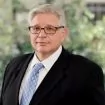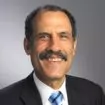Summary: The National Futures Association (NFA), the self-regulatory organization for the US derivatives industry, processes registrations as the delegee for the Commodity Futures Trading Commission (CFTC). Swap dealer applications are filed with the NFA, together with the swap dealer's policies, procedures and other documentation required to demonstrate the entity's ability to comply with swap dealer obligations under Section 4s of the Commodity Exchange Act and the CFTC's implementing regulations. The CFTC has delegated to the NFA the processing of Section 4s Submissions to determine whether they demonstrate that the applicant for registration is able to comply with the Section 4s Requirements. Swap dealers are also required to become NFA members and, as such, become subject to NFA examinations. This memorandum describes the status of the registration and examination process, as well as the NFA's new Continuous Monitoring Program.
Beginning on December 31, 2012, swap dealers began filing applications for registration with the Commodity Futures Trading Commission (CFTC). As of October 2015, 104 entities are provisionally registered as swap dealers.1 Approximately half are located in the United States; the rest are located in other jurisdictions, including Australia, Canada, the European Union (EU), Hong Kong, Japan, Mexico, Singapore and Switzerland. The CFTC has issued several "comparability determinations" in accordance with the policies and procedures set forth in its 2013 Cross-Border Guidance. 2 The comparability determinations permit non-US swap dealers in the relevant jurisdictions to comply with the applicable requirements of their home jurisdiction rather than the relevant CFTC requirements (i.e., substituted compliance).
The National Futures Association (NFA), the self-regulatory organization for the US derivatives industry, processes registrations as the delegee for the CFTC. Swap dealer applications are filed with the NFA, together with the swap dealer's policies, procedures and other documentation (Section 4s Submissions) required to demonstrate the entity's ability to comply with swap dealer obligations under Section 4s of the Commodity Exchange Act and the CFTC's implementing regulations (Section 4s Requirements). The CFTC has delegated to the NFA the processing of Section 4s Submissions to determine whether they demonstrate that the applicant for registration is able to comply with the Section 4s Requirements. Swap dealers are also required to become NFA members and, as such, become subject to NFA examinations.
- Section 4s Submission Review
After a swap dealer applicant submits all required documents for the Section 4s Submission and the NFA confirms that the submission is complete, the applicant becomes a provisionally registered swap dealer. The NFA then begins a substantive review of the Section 4s Submission, which may involve an iterative process with or notifications of deficiencies to the swap dealer. The NFA coordinates with the CFTC during this process. The swap dealer may be required to submit additional information and/or revised policies and procedures. A provisional swap dealer will become fully registered when the NFA and CFTC determine that the complete Section 4s Submission demonstrates compliance with all the final Section 4s Requirements.
To date, the NFA has completed a facial review of the Section 4s Submission for all provisionally registered swap dealers. It has also coordinated with the CFTC and completed a detailed substantive review of the chief compliance officer (CCO)-related requirements for all US swap dealers, and is in the process of conducting the CCO requirement review for non-US swap dealers (some of these non-US swap dealer CCO reviews have been completed). Feedback and corrective action letters relating to CCO requirements have been sent out. The NFA has followed up where corrective action was required and has sent acknowledgment letters to the relevant swap dealers where the CCO review has been completed and all corrective actions have been addressed.
The NFA has also completed detailed substantive Section 4s Submission reviews relating to business continuity and disaster recovery, conflicts of interest, and risk management programs. Non-US swap dealers are comprised of those that have elected substituted compliance and those that have not elected substituted compliance or for which substituted compliance is not available. US swap dealers and those non-US swap dealers not relying on substituted compliance have been sent acknowledgment letters for the Section 4s Submission reviews relating to these rule areas. While the reviews have been completed for non-US swap dealers relying on substituted compliance, these swap dealers have not yet been sent acknowledgment letters.3
The NFA is still conducting the Section 4s Submission review of remaining items, such as segregation, documentation, business conduct, treatment of special entities, and reporting and recordkeeping.
- NFA Examinations
- Overview
The NFA's routine onsite examinations of US swap dealers began in the summer of 2014. The first cycle of examinations covered the CCO function and requirements for US swap dealers. Because of the complexities of substituted compliance, non-US swap dealers were generally not examined during this cycle, except that non-US swap dealer affiliates of US swap dealers may have been examined with other swap dealer members of the corporate group to the extent that they are not relying on substituted compliance. The NFA announced during a recent audioconference for member swap dealers4 that all of these CCO examinations have been completed and only a small number of examination reports remain to be issued. Significant findings from this round of examinations are discussed below.
The NFA's next exam cycle, due to begin shortly, will be risk-based and focus on risk management and market practices. In particular, in the risk management area, the examinations will focus on risk governance, market risk, credit risk, business unit responsibilities and annual testing of the risk management program. The market practices part of the examination will focus on fraud, manipulation and other abusive practices. The NFA has stated that, while the CCO examinations were consolidated around a discrete set of requirements, this next cycle of examinations will be more layered to reflect a maturing of the NFA's efforts and begin capturing the wider range of requirements to which swap dealers are subject. In this regard, the second cycle will be more predictive of the NFA's approach to swap dealer examinations in the future.
The NFA plans to schedule examinations in a particular area only after it has completed feedback on the related Section 4s Submission review so that firms "know where they stand ahead of their particular exam," although firms will not necessarily have received an acknowledgment letter prior to the examination. 5 Consistent with this approach, the NFA has identified nine firms for the first round of second-cycle examinations. Before the examinations begin, each firm will be provided with a first-day letter that lists the material the NFA requires before it begins the onsite process and identifies the initial swap dealer personnel meetings (with topics) it seeks. In general, the NFA expects to arrive onsite approximately 30 days after sending the first-day letter. The NFA expects each exam to last four to five months. The NFA plans to have an examination team of five to six examiners, supported by a director or associate director, onsite for approximately one to two of these months. The timeframe may vary depending on the size and complexity of the firm.
The onsite examinations will include meetings with key personnel, testing through review as well as exception and management reports, and observing in real time. The examiners will also raise issues identified in the course of the examination. The NFA will share its findings in writing before closing the examination and will conduct a closing meeting, after which it will issue a written examination report.
The NFA has identified 51 member swap dealers that it will examine as part of the second examination cycle. Because of corporate affiliations and the NFA's consolidated corporate group approach, it intends to conduct 31 separate examinations of these 51 swap dealers.
The NFA does not yet intend to examine non-US swap dealers. With respect to non-US swap dealers that are not relying on substituted compliance or rule areas for which substituted compliance is not available, the NFA has stressed that it will examine non-US swap dealers but plans to do so towards the end of or after the second examination cycle. With respect to non-US swap dealers relying on substituted compliance, the timeline is less clear. The CFTC continues to work with foreign regulators to address interpretive and implementation issues around substituted compliance, and the NFA continues to engage with the CFTC on these issues as well. The NFA has also been reaching out to relevant foreign regulators to help forge a path towards beginning non-US swap dealer examinations. In the meantime, as discussed below, the NFA is including both US and non-US swap dealers in its new Continuous Monitoring Program (CMP).
- CCO Examinations: Key Findings and Better Practices
The CCO examinations identified three key areas of concern: (1) training, (2) compliance monitoring and (3) tracking of non-compliance issues. They also observed certain "better practices" relating to resource allocation and layering of compliance reviews.
- Concerns
- Training. The NFA expects that swap dealers will have trained all relevant employees on applicable regulations and implemented a training monitoring program. The examinations found that some firms had not yet provided training or did not yet have a training program in place. In addition, some firms only trained senior, front-office personnel and then expected those individuals in turn to train their staff. More commonly, firms did not adequately evidence their training, e.g., they did not maintain training attendance logs.
- Compliance Monitoring. The examinations revealed instances of inadequate compliance with regulations, either because a CCO was too removed from or not knowledgeable enough about the firm's compliance monitoring activities, or because the CCO relied too heavily on individuals to use their own discretion as to whether to escalate concerns to the CCO. In addition, while the CCO is not a risk officer, swap dealers are expected to have a process that ensures that the CCO is engaged in risk-management compliance issues. The NFA notes that "the CCO is responsible indeed to monitor the firm's compliance with" risk management requirements. 6 The examinations found insufficiencies here too. The NFA has indicated that appropriate engagement of the CCO could include being on certain committees and at key meetings, or receiving reports that highlight risk management compliance concerns. The NFA recommends that the CCO receive relevant reports from Operations and other departments that have responsibility for compliance with internal business conduct requirements and that the CCO "get comfortable" with the testing of the risk management program, including reviewing results of the testing.7
- Tracking of Non-Compliance Issues. The examinations identified gaps in the CCOs' tracking of non-compliance issues and monitoring for remediation of these issues. The NFA's expectation is that "all non-compliance issues" will be included as part of a CCO's responsibilities. However, in some cases, certain non-compliance issues identified by Operations or internal audits were not tracked by the CCO and other issues were logged, but remediation plans were insufficient because they were missing target dates or owners, or did not appear to be updated in a timely manner.
- Better Practices
Compliance Resources. The NFA observed that firms with dedicated swap dealer compliance resources have generally allowed those firms to meet the CCO requirements effectively. Dedicated swap dealer compliance resources also play a key role in a firm's ability to prepare adequate CCO annual reports. Conversely, where firms have not dedicated resources to help the CCO, the CCO has "struggled" to meet the CCO requirements.8
Electronic Communication Surveillance. Most firms rely on electronic or keyword searches to flag potential issues, which can capture a very large number of emails. Some firms' compliance departments add an additional layer of surveillance by performing targeted reviews of or deeper dives into particular subsets of emails (e.g., those of a particular trading desk based on volume flagged by keyword searches or rotating deeper dives).
- Self-Reporting of Non-Compliance
The NFA encourages swap dealers to notify it and the CFTC of material non-compliance issues when they occur and stresses that "timeliness [rather than being able to provide detailed information] is often the more important factor for firms to consider when self-reporting." 9 Swap data recordkeeping and reporting and recording of swap-related telephone conversations have been two of the more commonly reported non-compliance issues. After receipt of a self-report, the NFA typically requests a written summary as well as an appropriate remediation plan. The NFA and CFTC have coordinated their follow-up efforts, including setting up joint conference calls with the swap dealer.
- Continuous Monitoring Program
In the spring of 2015, the NFA rolled out its new CMP, the goal of which is to provide the NFA with a way to keep abreast of significant industry developments. The CMP has conducted introductory meetings with several swap dealer CCOs, including non-US swap dealer CCOs, to introduce them to the program. The NFA intends that all swap dealer CCOs will have had at least an introductory meeting by the spring of 2016.
The CMP's activities occur through a combination of periodic meetings with swap dealer CCOs and other key personnel (which, depending on the monitoring information obtained, may be quarterly or every six months); reviews of swap dealer reports, including the NFA's new annual questionnaire; and assessments of events or trends that could have an impact on swap dealers more generally. For the first few years, the focus of the CMP will be to develop a baseline understanding of firms' swap dealer business and supporting infrastructure, to follow up on remediation of issues identified in an NFA examination, and to learn more about regulatory implementation initiatives and challenges.
Footnotes
1.National Futures Association SD/MSP Registry.
2.Interpretive Guidance and Policy Statement Regarding Compliance with Certain Swap Regulations, 78 Fed. Reg. 45292 (July 26, 2013) (Cross-border Guidance). All of the CFTC's comparability determinations are available on its website.
3.See NFA, SD and MSP Member Regulatory Conference (May 7, 2015); Update on NFA's Swap Dealer and Major Swap Participant Program, National Futures Association Audio Conference, March 4, 2015 (March 2015 Audio Conference).
4.Audio Conference for Swap Dealers and Major Swap Participants on September 24, 2014 (September 2015 Audio Conference).
5.Id.
6.March 2015 Audio Conference.
7.Id.
8.Id.
9.Id.
The content of this article is intended to provide a general guide to the subject matter. Specialist advice should be sought about your specific circumstances.



